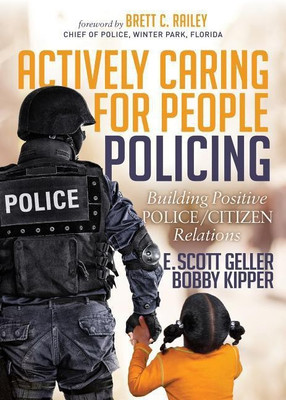Actively Caring for People Policing(English, Paperback, Geller E. Scott)
Quick Overview
Product Price Comparison
Throughout the years experts have struggled to define the term "police culture." For most this label means a reactive approach to keeping people safe by using punitive consequences to punish or detain the perpetrators. The result: More attention is given to the negative reactive side of policing than a positive proactive approach to preventing crime by cultivating an interdependent culture of residents looking out for the safety, health, and well-being of each other. We believe police officers can play a critical and integral role in achieving such a community of compassion---an Actively Caring for People (AC4P) culture. An AC4P culture can be fueled by AC4P Policing, and involves a paradigm shift regarding the role and impact of "consequences." With AC4P Policing, consequences are used to increase the quantity and improve the quality of desired behavior. Police officers are educated about the rationale behind using more positive than negative consequences to manage behavior, and then they are trained on how to deliver positive consequences in ways that help to cultivate interpersonal trust and AC4P behavior among police officers and the citizens they serve. This teaching/learning process is founded on seven research-based lessons from psychology---the science of human experience. The first three lessons reflect the critical behavior-management fundamentals of positive reinforcement, observational learning, and behavior-based feedback. The subsequent four lessons are derived from humanism, but behaviorism or ABS is essential for bringing these humanistic principles to life. The result: humanistic behaviorism to enhance long-term positive relations between police officers and the citizens they serve, thereby preventing interpersonal conflict, violence, and harm.


